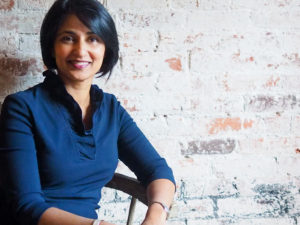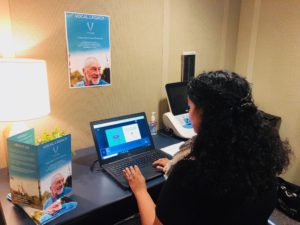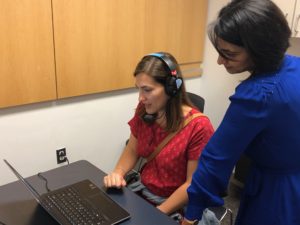
The Voice Preservation Center at Northeastern University
Early one brisk November morning I got a phone call from a distressed gentleman. I’ll call him Mr. K. His voice was shaky and hoarse. He told me that he had just learned about VocaliD – a company I had spun out from Northeastern University in 2015 based on research from my lab. Mr. K was calling because he was to have a total laryngectomy and partial glossectomy the very next day. He wanted to know if there was anything, he could do to save his voice. He had heard that we were making personalized synthetic voices for individuals with severe speech impairments. In those cases, we were crafting unique voices by blending residual vocalizations from the recipient with a database of recordings provided by a matched speech donor. Mr. K wanted to know if we could find a matching donor for him. At first, I gave him some recording tips, but he was trepidatious. So, I stayed with him on the phone as he downloaded Praat(speech analysis software) to his computer and walked him through how to make a few sustained vocalizations. He did this with ease. I gave him a few more pointers and encouraged him to bank some messages that he’d want to have saved for his loved ones.
When I hung up the phone, I felt a pit in my stomach. I didn’t know Mr. K, but I had just talked him through a very personal and painful process of recordings of his last few words and messages in his own voice. I wish he had known about us earlier. If only he had another day or two. Back in 2017, we needed about 3-5 hours of speech to make a decent sounding synthetic voice. Mr. K didn’t have days, he had 17 hours. So, I called him back and I told him that if he was up for it, we could have him record using our online voice banking portal – The Human Voicebank. Thousands of everyday volunteers from around the world had already used the portal so he could do the same. He would just designate that he was recording to be his own voice donor. He began immediately and our team spot checked Mr. K’s recordings on an hourly basis. He needed to take several breaks because radiation treatment had made his voice hoarse and weak. He recorded in 15-20 sentence chunks punctuated by breaks. Over the next 7-8 hours Mr. K recorded 1700 sentences (about half the full set but enough to build his synthetic vocal legacy).
This experience with Mr. K. sparked my desire to create a Voice Preservation Initiative that could help thousands of people at risk of temporary or permanent voice loss. Over the past four years, 27,000+ people from 120 countries, ranging in age from 6-91 have contributed to The Human Voicebank. While the process is straightforward and simple to use, the quality of the recordings can vary dramatically. Some record in less than ideal environments such as rooms with fans, pets, people and other background noise. Some read in a neutral or bored tone, while others turn on their inner drama voice. And because recording the full corpus can be tedious, many contributors have not recorded enough data for voice blending and synthesis. Unlike everyday volunteers, those who are banking their voice for themselves have an incentive. They also don’t have a second chance if their recordings are not clear, contaminated or corrupt. And, our small team cannot listen to every recording as we did for Mr. K. BUT, if we team with hospitals and University Speech and Hearing Clinics, we can make voice preservation effective, efficient and impactful. The benefits of voice preservation are numerous – from helping clients and their loved ones cope with voice loss, to providing guidance and motivation to complete the task. Once the voice is ready for use, clinicians can also play a role in helping adjust the voice and providing strategies to acclimate to a new means of communication.

The Voice Preservation center at Northeastern University is a collaboration between The Department of Communication Sciences and Disorders and VocaliD to provide services to our local community and across the Greater Boston Area. The initiative was officially launched on September 29th, 2019 with an experiential continued education seminar that included immersive activities and a tour of the clinic. If you or someone you know is at risk of voice loss, please don’t wait to Voicebank. Even if you don’t need it, someone else can benefit from your recordings. It is well known that banking your blood can save lives, and now we are learning that banking your voice, can change lives. You can learn more about the Center at https://bouve.northeastern.edu/csd/clinic/voice-preservation-clinic/
